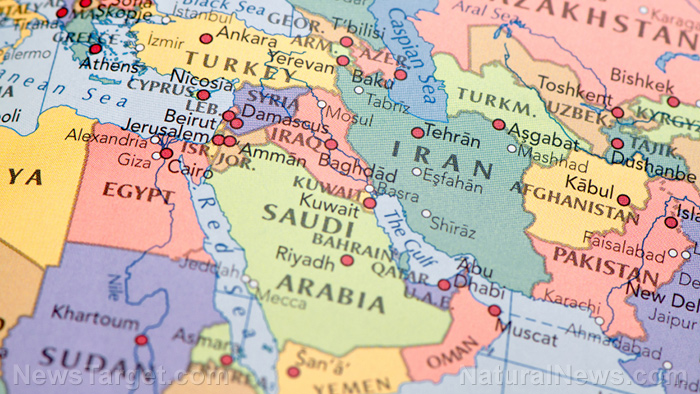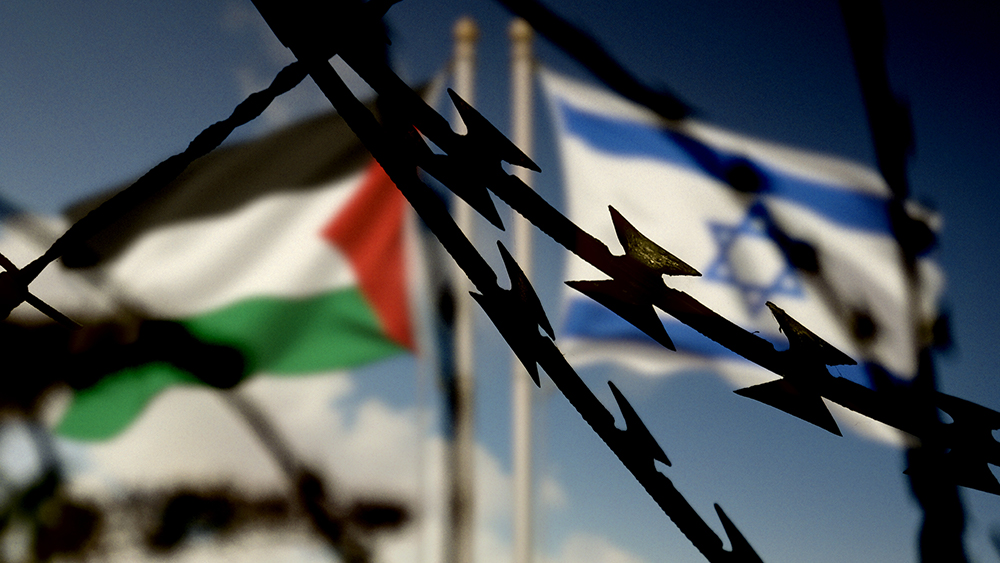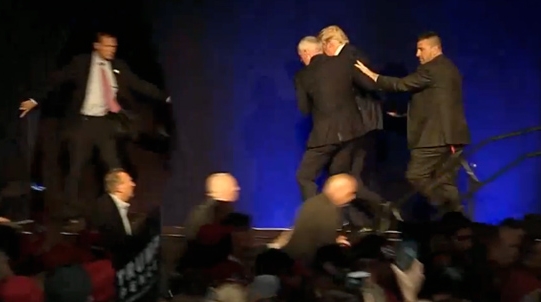Blinken says the U.S. is determined not to spread conflict in the Middle East, but US missile strikes against Houthis prove otherwise
01/19/2024 / By Ava Grace

U.S. Secretary of State Antony Blinken has reiterated that the U.S. is determined not to spread conflict in the Middle East. But U.S.-led strikes against the Houthi rebels in Yemen say otherwise.
“We’re determined … that we not see escalation, [and] that we don’t have the conflict spread. We’ve made that very clear,” Blinken said on Jan. 10 while in Bahrain. “But of course – if our personnel, if our forces are threatened or attacked, we’ll take appropriate steps [and] we’ll respond.”
The secretary of state also mentioned that the Houthi attacks have been “aided and abetted by Iran,” and warned that “if these attacks continue, there will be consequences.”
“[The U.S. has] repeatedly tried to make clear to Iran, as other countries have as well, that the support they they’re providing the Houthis – including for these actions – needs to stop. It’s not in their interest to see the conflict escalated.”
Recently, however, American and British warships shot down one of the largest barrages of missiles and drones fired by the Houthis – formally Ansar Allah (Supporters of God) – into the crucial Red Sea shipping lane. Both the Houthis and Tehran have condemned the strikes, which they claim hit 73 sites in Yemen and killed at least five. They also vowed that the Western alliance will pay a huge price for the attacks.
Despite the breadth of the attacks, some observers said that the strikes – which were backed by other U.S. allies – aimed at containing the conflict. (Related: U.S., U.K. continue airstrikes against Houthi targets in Yemen.)
Blinken tours the Middle East
On Jan. 7, Blinken posted on X that he met with Jordan’s King Abdullah II in the capital Amman “to discuss efforts to protect civilians in Gaza and the West Bank.” He also thanked the monarch “for his leadership in providing humanitarian aid to Palestinians in Gaza,” reiterating that “the conflict must not spread further in the region.”
The following day, Blinken posted that he met with Emirati President Sheikh Mohamed bin Zayed Al Nahyan in Abu Dhabi, the United Arab Emirates’ capital. The two discussed “efforts to prevent the conflict in the region from widening and address humanitarian needs in Gaza,” with Blinken underscoring the “continued commitment to the establishment of an independent Palestinian state.”
During his Jan. 10 stop in Bahrain, the secretary discussed with King Hamad bin Isa al-Khalifa efforts to sustain a lasting peace in Gaza. A U.S. spokesman added that they took time to reaffirm their commitment to freedom of navigation in the context of the Houthi attacks.
Manama is a member of the Washington-led Red Sea coalition meant to safeguard traffic through the region’s busiest shipping lanes. The coalition has warned that continued attacks by the Iran-backed rebels would come at a cost, and the U.S. military has prepared options to strike the group. The latest Houthi barrage, including 18 drones, two cruise missiles and one ballistic missile, caused no damage or injuries as per U.S. Central Command.
Blinken also met with Mahmoud Abbas, president of the Palestinian National Authority (PNA), during his week-long trip that sought to calm tensions across the Middle East. The Biden administration is hoping that an overhaul of the authority – which oversees the West Bank – will soften Israeli resistance to allowing it a role in governing Gaza. The PNA once controlled the Gaza Strip, but was removed from power in 2007 after losing to Hamas in the Battle of Gaza that year.
“We talked as well about the importance of reforming the [PNA and] Palestinian governance so that it can effectively take responsibility for Gaza, … [and] so that Gaza and the West Bank can be reunited under a Palestinian leadership,” said Blinken.
The Wall Street Journal noted that “U.S. officials hoped a subsequent meeting … in the Jordanian city of Aqaba between Abbas, Abdullah II and Egyptian President Abdel Fattah Al Sisi would convince the Palestinian leader to give up some powers or bring fresh faces into new roles at the [PNA].”
Visit Chaos.news for more stories about the ongoing conflict at the Red Sea.
Watch this report from the Hindustan Times about the Houthis mocking the second U.S. strike against them as ineffective.
This video is from The Prisoner channel on Brighteon.com.
More related stories:
Houthi missile hits U.S.-owned cargo ship, says U.S. government.
Houthi rebel attacks prompt British Petroleum to pause all fuel shipments in Red Sea.
U.S. and U.K. warplanes bomb Houthi targets in Yemen in another significant escalation of Gaza war.
Sources include:
Submit a correction >>
Tagged Under:
Antony Blinken, big government, chaos, escalation, Holy War, Houthi rebels, Israel collapse, jihad, Middle East, military strikes, national security, Red Sea, regional conflict, spillover, terrorism, violence, White House, WWIII, Yemen
This article may contain statements that reflect the opinion of the author
RECENT NEWS & ARTICLES
COPYRIGHT © 2017 NATIONAL SECURITY NEWS





















